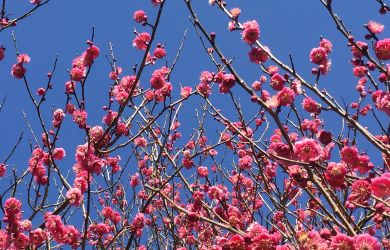
September 1, 2011
Hanezu no Tsuki
Fêted director Naomi Kawase's painfully slow affair with nature
By Metropolis
Originally published on metropolis.co.jp on September 2011

Of the current crop of Japanese directors Naomi Kawase is among the most heralded. At the Cannes Film Festival she’s won the Camera D’Or (in 1997 for Moe no Suzaku) as well as the Grand Prix (in 2007 for The Mourning Forest/Mogari no Mori) and Hanezu no Tsuki played in competition at that esteemed fest this year. The problem is that a lot of her work is inexorably slow, overburdened with symbolism and over-reliant on nature. Nowhere is this more evident than in the present piece. It opens with an unexplained archaeological dig and continues with poetic shots of nature and mountains, with a voiceover telling us of ancient Japanese myth in which two male peaks vie for the affections of a female mountain. Only at the end do were learn that the excavation is of Japan’s 6th century imperial capital, although this could be inferred as almost all of Kawase’s films are set in her home prefecture of Nara. The first hour, or two thirds of this work, simply shows Kayo (Hako Oshima), her lover Takumi (Tohta Komizu), and her live-in partner Tetsuo (Tetsuya Akikawa) going about their daily lives with practically no story. Nature is portrayed with Kawase’s characteristic lyricism, ghosts of WWII soldiers wander about and there are numerous references to local organic food and crafts (both Kayo and Takumi are craftspeople). When Kawase finally gets around to telling the piecemeal story of the love triangle we hardly care. There’s no doubting the beauty of her portrayal of nature but without a stronger narrative only the hardcore art house set will be interested.







